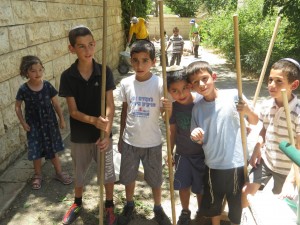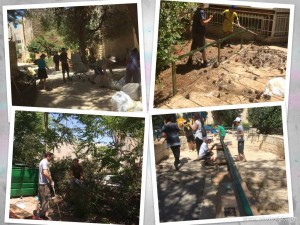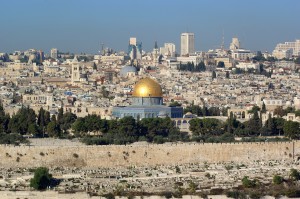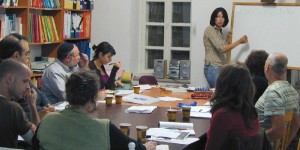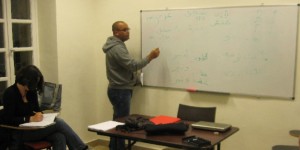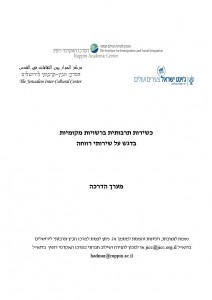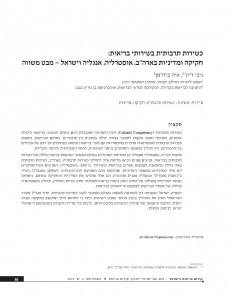Working Together to Improve our Environment in Gilo
With assistance from the UJA – Federation of New York, we’ve been working in the Gilo neighborhood for the past five years, helping the Gilo Community Council. Utilizing principles of deliberative democracy, we’ve been helping residents to take initiative and responsibility for their communities. Most of our efforts have until now focused on parking and education issues. Other initiatives have focused on public – private spaces (PPS’s), but on a small scale.
Since January we’ve been helping local activists who reside in the area of Tirosh St., a long street that includes a number of PPS’s, in planning on which issues to deal with, what to do and how to go about doing it. After several meetings, they held a major, community-wide clean-up and renovation event on June 27, 2014, with help from the Jerusalem Municipality. You can see all this documented in a short video.
In all more than 160 took part – 100 children from the neighboring schools, and 60 residents. The residents were in charge from beginning to end – they were in touch with the Municipality, they organized the volunteers, they were in charge of the implementation. The Municipality worked hand in hand with the residents, preparing the area beforehand, and providing tools and work materials. Moving forward, there’ll be continued work on that PPS, most likely in smaller groups to make upkeep easier to maintain.
Kudos to all involved! We can’t wait to see more initiatives coming out of that area.

